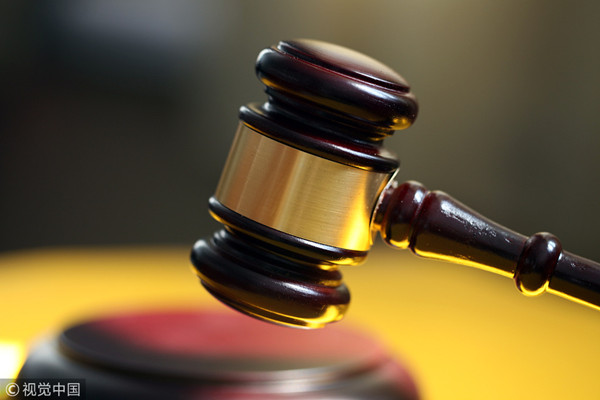Resident drops appeal after watchdog explains efforts to combat fumes
 |
| [Photo/VCG] |
A Beijing resident dropped his appeal against the environmental protection bureau in the city's Haidian district on June 4 after he was told in court that the polluting fumes he complained about were being solved step by step.
When Beijing No 1 Intermediate People's Court heard the case on June 4, the district's ecological and environmental bureau explained the efforts it made after receiving a complaint from the resident, surnamed Qin, about the emission of polluting fumes.
The authority said the source of the fumes, a barbecue restaurant in the community where Qin lives, has been replaced by another business that would not pollute the area.
"We visited the restaurant and asked a third-party institute to test its fume emissions twice in August last year after Qin complained about it a lot, finding the test results were qualified," Xing Likai, deputy director of the environmental protection bureau, told the court.
"We also urged the restaurant to upgrade its devices to prevent the emission of fumes from polluting the community."
But Qin sued the authority in the district court in December, saying the test process was not transparent and the smoke still made him uncomfortable.
The district court did not support Qin, so he took his case against the authority to the intermediate people's court.
During the hearing on Tuesday, Qin said he appealed because the authority's test was not transparent and the bureau's attitude in handling his problem was not good.
Xing told Qin the bureau is planning to install cameras across the district to monitor the emission of fumes by major catering businesses, especially barbecue restaurants, and other places that are the source of frequent pollution complaints from the public.
"The work will be done within this year," he said.
Meanwhile, the authority and other government departments are researching ways to improve the fume emission standard to meet residents' demands for a better environment, he said.
"In addition, we'll be more patient when communicating with residents, and we'd like to follow Qin's case to help root out his problem step by step," Xing said. "If Qin finds new pollution around his community, we'll also welcome his reports to monitor our work."
After hearing the authority's explanations, Qin said he decided to abandon his appeal.
Ma Lina, vice-president of the Beijing No 1 Intermediate People's Court, said Qin's case showed the importance of communication between the environment department and residents.
"It's good to see more residents keeping an eye on pollution and beginning to complain about the problem to government authorities and courts," she said, adding that such increased attention will contribute to environmental protection.
From 2014 to 2018, the intermediate people's court heard 105 cases of environmental litigation between residents and government departments. In most of the cases, the authorities were asked to disclose administrative information.
Ma said the number of such cases is rising, adding they dealt with many aspects of pollution, including the air, water, solid waste and noise.









